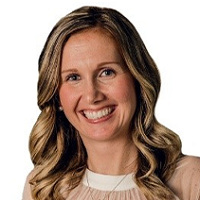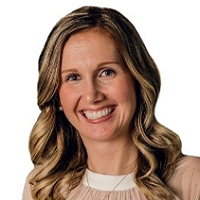Are Your Savings Just Going to Taxes?
Don't give away more than you have to. Put tax-efficient investing strategies to work.


There’s a quote from an old Morgan Stanley ad that gets passed around a lot at tax time: “You must pay taxes, but there’s no law that says you gotta leave a tip.”
Savers, especially, should pay heed to this advice.
Taxes already take a chunk of your earnings — the more you make, the more you pay (in most cases). But that burden can be even heavier for those who save and invest.

Sign up for Kiplinger’s Free E-Newsletters
Profit and prosper with the best of expert advice on investing, taxes, retirement, personal finance and more - straight to your e-mail.
Profit and prosper with the best of expert advice - straight to your e-mail.
For example, if you have investments such as mutual funds that aren’t in an IRA/Roth IRA and are generating annual income, that money, in most situations, is 100% taxable. If you didn’t know that, and were surprised when a 1099-DIV showed up in the mail, you may have some re-evaluating to do.
How much of a difference can a tax-efficient portfolio make?
Let’s say there’s a 20-year-old with $100 received from a mutual fund dividend, and he pays 30% (25% federal and 5% state) in taxes. He’s left with just $70.
Next, let’s look at his twin brother’s account. He has assets in the same amount, but it’s been structured in a way so that 50% isn’t taxable. He’s paying $15 in taxes — 30% of $50 — and ends up keeping $85 instead of $70.
For a younger person, that tax savings is important because of the compounding interest; if you’re keeping more, you’re likely investing more, and you’re probably earning more.
Even if these brothers got the exact same rate of return on the exact same dollar amount, the one with the tax-efficient portfolio is going to likely end up with more money in retirement.
Now, let’s go bigger — and older.
Recently, we had a woman come in with a $1.5 million portfolio — all stocks, bonds and mutual funds, no municipal bonds or any tax-advantaged vehicles. All of the money was non-qualified (or non-retirement), and therefore all of the income being created was taxable. Her adviser told her that when she reaches retirement, her portfolio will provide $40,000 in income each year.
But that isn’t a complete picture. I ran the numbers and showed her: With that $40,000 in income, and paying 30% in taxes ($12,000), she’ll really be living on only $28,000.
If she had a 50% tax-efficient portfolio, she’d keep $34,000 instead of that $28,000. Which one would you rather be living on?
Unfortunately, this seems to be the message a majority of the population doesn’t hear. Instead, much of their focus goes to rate of return or that big number at the bottom of those quarterly statements.
But even if the rate of return on your mutual fund is 7% or more, you’re not getting all of that. That’s not the net. And if that big dollar amount is bumping you into a higher tax bracket, you’re not keeping as much as you could.
In the end, it isn’t about how much you make, it’s about how much you keep.
Your financial adviser can help you find tax-wise ways to help shield your assets and still use income-producing assets such as municipal bonds, interval funds, alternative investments, IRAs, real estate and other strategies. Get an analysis of your portfolio to help ensure the money you’ve put away to build a better future doesn’t end up costing you at tax time.
Kim Franke-Folstad contributed to this article.
The article and opinions in this publication are for general information only and are not intended to provide specific advice or recommendations for any individual. Please consult with your tax and/or legal adviser for such guidance.
Examples are for illustrative purposes only and may not be indicative of your situation. Your results will vary.
Securities offered only by duly registered individuals through Madison Avenue Securities, LLC (MAS), Member FINRA & SIPC. Advisory services offered only by duly registered individuals through Brighter Financial Capital Management, LLC, a SEC Investment Advisor. Insurance products and services are offered through Clark & Associates, Inc. Financial Solutions, an affiliated company. Brighter Financial Capital Management, LLC and MAS are separate entities, independently owned.
The appearances in Kiplinger were obtained through a PR program. The columnist received assistance from a public relations firm in preparing this piece for submission to Kiplinger.com. Kiplinger was not compensated in any way.
Related Content
Profit and prosper with the best of Kiplinger's advice on investing, taxes, retirement, personal finance and much more. Delivered daily. Enter your email in the box and click Sign Me Up.

Megan Clark is CEO an Executive Wealth Manager at Clark & Associates Inc. Financial Solutions and is an Investment Adviser Representative and Insurance Professional. As a financial adviser, she is passionate about helping families create a holistic financial plan and she often holds "For Women By Women" informational seminars to reach out and help assist women in pursuing their goals. Clark is a graduate of the University of Virginia. (Securities offered only by duly registered individuals through Madison Avenue Securities, LLC (MAS), Member FINRA & SIPC. Advisory services offered only by duly registered individuals through Brighter Financial Capital Management, LLC, a SEC Investment Advisor. Insurance products and services are offered through Clark & Associates, Inc. Financial Solutions, an affiliated company. Brighter Financial Capital Management, LLC and MAS are separate entities, independently owned.)
-
 Mississippi Tax-Free Weekend 2025 Is Here: What to Know Before You Shop
Mississippi Tax-Free Weekend 2025 Is Here: What to Know Before You ShopTax Holiday Just in time for Prime Day, Mississippi is celebrating a tax holiday in July. Find out how you can save on back-to-school essentials.
-
 $280 Million Boost Revives Florida’s Home-Hardening Grant Program
$280 Million Boost Revives Florida’s Home-Hardening Grant ProgramA major infusion of state funds revives Florida's flagship home-hardening grant program to protect homeowners and potentially lower insurance costs.
-
 Key to Financial Peace of Mind: Think 'What's Next?' Rather Than 'What If?'
Key to Financial Peace of Mind: Think 'What's Next?' Rather Than 'What If?'Even if you've hit your magic number for retirement, it's hard to stop worrying about money. Giving it a clear purpose is one way to reduce financial anxiety.
-
 Three Estate Planning Documents a Business Owner Can't Afford to Skip
Three Estate Planning Documents a Business Owner Can't Afford to SkipA business owner's estate plan should protect the company and its employees as well as the entrepreneur's heirs. These three documents are critical.
-
 Opportunity Zones: An Expert Guide to the Changes in the One Big Beautiful Bill
Opportunity Zones: An Expert Guide to the Changes in the One Big Beautiful BillThe law makes opportunity zones permanent, creates enhanced tax benefits for rural investments and opens up new strategies for investors to combine community development with significant tax advantages.
-
 Five Ways Retirees Can Keep Perspective Through Market Jitters
Five Ways Retirees Can Keep Perspective Through Market JittersMarket volatility is a recurring event with historical precedents (the dot-com bubble, global financial crisis and pandemic), each followed by recovery. Here's how people who are near or in retirement can navigate economic uncertainty.
-
 I'm a Financial Strategist: This Is the Investment Trap That Keeps Smart Investors on the Sidelines
I'm a Financial Strategist: This Is the Investment Trap That Keeps Smart Investors on the SidelinesForget FOMO. FOGI — Fear of Getting In — is the feeling you need to learn how to manage so you don't miss out on future investment gains.
-
 Can You Be a Good Parent to an Only Child When You're Also a Business Owner?
Can You Be a Good Parent to an Only Child When You're Also a Business Owner?Author and social psychologist Susan Newman offers advice to business-owner parents on how to raise a well-adjusted single child by avoiding overcompensation and encouraging chores.
-
 How Advisers Can Steer Their Clients Through Market Volatility (and Strengthen Their Relationships)
How Advisers Can Steer Their Clients Through Market Volatility (and Strengthen Their Relationships)Financial advisers need to be strategic when they communicate with clients during market volatility. The goal is to not only reassure them but to also help them avoid rash decisions, deepen your relationship with them and build lasting trust.
-
 The Hidden Costs of Caregiving: Crisis Goes Well Beyond Financial Issues
The Hidden Costs of Caregiving: Crisis Goes Well Beyond Financial IssuesMany caregivers are drained emotionally as well as financially, leading to depression, burnout and depleted retirement prospects. What's to be done?